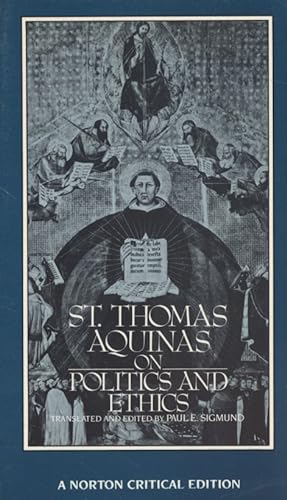sigmund paul saint thomas aquinas (1 Ergebnisse)
FeedbackSuchfilter
Produktart
- Alle Product Types
- Bücher (1)
- Magazine & Zeitschriften (Keine weiteren Ergebnisse entsprechen dieser Verfeinerung)
- Comics (Keine weiteren Ergebnisse entsprechen dieser Verfeinerung)
- Noten (Keine weiteren Ergebnisse entsprechen dieser Verfeinerung)
- Kunst, Grafik & Poster (Keine weiteren Ergebnisse entsprechen dieser Verfeinerung)
- Fotografien (Keine weiteren Ergebnisse entsprechen dieser Verfeinerung)
- Karten (Keine weiteren Ergebnisse entsprechen dieser Verfeinerung)
- Manuskripte & Papierantiquitäten (Keine weiteren Ergebnisse entsprechen dieser Verfeinerung)
Zustand
- Alle
- Neu (Keine weiteren Ergebnisse entsprechen dieser Verfeinerung)
- Antiquarisch (1)
Einband
- alle Einbände
- Hardcover (Keine weiteren Ergebnisse entsprechen dieser Verfeinerung)
- Softcover (1)
Weitere Eigenschaften
- Erstausgabe (Keine weiteren Ergebnisse entsprechen dieser Verfeinerung)
- Signiert (Keine weiteren Ergebnisse entsprechen dieser Verfeinerung)
- Schutzumschlag (Keine weiteren Ergebnisse entsprechen dieser Verfeinerung)
- Angebotsfoto (1)
Gratisversand
- Kostenloser Versand nach Deutschland (Keine weiteren Ergebnisse entsprechen dieser Verfeinerung)
Verkäuferbewertung
-
St. Thomas Aquinas on Politics and Ethics. A new translation, backrounds, interpretations / A Norton Critical Edition.
Verlag: Norton & Company, 1988
ISBN 10: 0393952436 ISBN 13: 9780393952438
Anbieter: Fundus-Online GbR Borkert Schwarz Zerfaß, Berlin, Deutschland
Paperback. Zustand: Sehr gut. 288 p. Ein sehr gutes und sauberes Exemplar/ A very good and clean copy. - CONTENT: Selections from the Work of St. Thomas Aquinas The Summa against the Gentiles (Summa contra Gentiles, 1259-1264) BOOK I The Two Ways of Knowing the Truth about God. Truths about God that are Known by Reason are also Properly Made Available to Man by Faith. The Truths Based on Reason Are Not Contrary to the Truth of the Christian Faith. The Relationship between the Human Reason and the Primary Truth of Faith. BOOK II I low an Intellectual Substance Can Be the Formative Principle of the Body. BOOK in Everything that Acts Acts for an End. Everything that Acts Acts for a Good. The End of Every Intellectual Substance Is to Know God. Human Happiness Does Not Consist in Bodily Pleasures. Happiness Does Not Consist in the Goods of the Body. Man's Ultimate Happiness Consists in the Contemplation of God. Man's Ultimate Happiness Is Not in this Life. How God May Be Seen in His Essence. A Created Intellect Needs the Influence of (Divine) Light in Order to See God in His Essence. In that Final Happiness Every Human Desire Will Be Fulfilled. God Governs the Universe by His Providence. Order among Men and in Relation to Other Things. BOOK IV It Was Fitting for God to Become Man. On the Rank of Bishop and (the Pope) Who Is Highest in That Rank. On Kingship or The Governance of Rulers (De Regimine Principum, 1265-1267) Men in Society Must Be under Rulers. Is It Better for a Group to Be under One Ruler or Many? Just Rule by One Person Is the Best Form of Government; Its Opposite Is the Worst. The Kinds of Government in Rome, and How the Republic Sometimes Prospered under Popular Rule. Tyranny is More Likely to Develop from the Rule of the Many than of One Person. Therefore Monarchy Is Preferable. The Rule of One Man Is Best. How to Limit the Possibility of Tyranny. Tyranny Is to Be Tolerated to Avoid Greater Evils. The Duties of a King. The Likeness of the King in His Kingdom to the Soul in the Body and to God in the Universe. The King Should Follow the Example of God's Rule. The Similarity between Government and Piloting a Ship. A Comparison of the Rule of Priests and Kings. To Gain the Ultimate End, the King Should Direct His Subjects to a Life of Virtue as Well as to Intermediate Ends. What is Needed for the Good Life. The Summa of Theology (Summa Theologiae, 12661273) i part i (1266-1268) Qu. 2. The Existence of God a. 3. Does God Exist? Qu. 12. How We Know God a. 12. Can We Know God in this Life by Natural Reason? a. 13. Do We Know God Better through Grace than through Natural Reason? Qu. 20. On God's Love a. 2. Does God Love All Things? Qu. 75. The Essence of the Soul a. 2. Is the Soul Self-Subsistent? a. 5. Is the Soul Composed of Matter and Form? a. 6. Is the Human Soul Corruptible? Qu. 79. The Powers of the Intellect a. 12. Is Synderesis a Special Power? Qu. 85. The Manner and Order of Understanding a. 1. Does Our Intellect Know Bodily and Material Things through Abstraction from Sense Images? a. 2. Are the Intelligible Types (Species) Abstracted from Sensory Images Known by the Intellect? Qu. 92. The Creation of Woman a. 1. Should Woman Have Been Made in the Original Creation? Qu. 96. Dominion among Men in the State of Innocence a. 3. Would All Men Have Been Equal in the State of Innocence? a. 4. Would One Man Have Been Lord over Another in the State of Innocence? Qu. 98. The Preservation of the Race (Species) a. 2. In the State of Innocence Would Procreation Have Taken Place through Sexual Intercourse? Qu. 108. The Hierarchies and Orders of the Angels a. 2. Are there Several Orders in Each Hierarchy of the Angels I-II THE FIRST PART OF PART II (1269-1270) Qu. 3. What is Happiness (Beatitudo)? a. 8. Does the Happiness of Man Consist in the Vision of the Divine Essence? Qu. 5. The Attainment of Happiness a. 3. Can Anyone Be Happy in this Life? Qu. 21. The Consequences of Human Acts a. 4. Are Good and Evil Human Acts Meritorious or Lacking in Merit in R.


